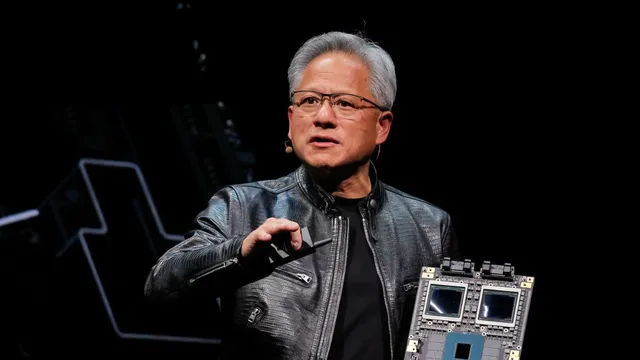- By Prateek Levi
- Fri, 25 Jul 2025 08:26 PM (IST)
- Source:JND
Nvidia CEO Jensen Huang recently shared bold predictions about the future of artificial intelligence, stating it could outperform the internet in wealth creation within a much shorter time span. During an appearance on the All-In podcast, hosted by venture capitalist Chamath Palihapitiya and joined by Chase Lochmiller and James Latinsky, Huang outlined his vision for AI and its potential to reshape economies, industries, and creative work.
Huang, who leads Nvidia—a trillion-dollar company central to the AI revolution—believes he has a front-row seat to the developments shaping the future. Thanks to his company’s close ties with leading AI players, he claims unique insight into what figures like Mark Zuckerberg, Elon Musk, and Sam Altman are working on, even before the public hears about it. This “insider intelligence,” as he describes it, is a key driver of his outlook.
ALSO READ: iPhone 17 Air : Will Apple Trade Features For A Slimmer Profile?
In the conversation, Huang made a striking claim: AI will generate more millionaires in five years than the internet did in two decades. Yet, amid growing concerns around job losses from automation, Huang expressed a different worry—our pace in generating new types of jobs isn’t fast enough.
“AI in my case is creating jobs; it causes people to create things that other people would like to buy. It drives more growth, more jobs, and all that goes together. AI is the greatest technology equaliser of all time,” he said.
When asked to elaborate on that, Huang pointed out how the definition of a programmer has fundamentally changed. Traditionally, programming required technical fluency in languages like C++ or Python. But with AI, that’s shifting.
“Everybody is an artist now; everybody is an author now,” Huang said. “Anybody who is not using AI is going to lose their jobs to someone with knowledge of AI.”
He argued that the gap between an idea and its execution is shrinking rapidly, allowing creatives to harness technical tools and vice versa. This, he said, is fuelling a new wave of innovation where people are no longer constrained by technical barriers.
Looking ahead, Huang sees AI becoming a core component of every company, regardless of industry. He envisions a future where businesses have two factories—one for their physical products and one for the AI that powers them. As an example, he pointed to Tesla, which runs separate operations for car manufacturing and AI development.
On the infrastructure side, Nvidia is investing heavily. Huang noted that Nvidia plans to produce around half a trillion dollars’ worth of AI supercomputers in Arizona and Texas over the next four years. He believes this infrastructure alone will support trillions in industry value.
To emphasise the disruptive power of small, high-impact AI teams, Huang referenced the example of researchers at DeepSeek and OpenAI. “150 AI researchers can create value worth about $20 to $30 billion,” he said, adding, “That is about $200 million per person in value creation.”
ALSO READ: Nothing Phone 3 Gets Massive ₹20,000 Price Cut On Flipkart: Is It Finally Worth It?
In his view, no other industry in history has offered this kind of leverage and scalability, underscoring why he believes AI will define the next chapter of global growth.

